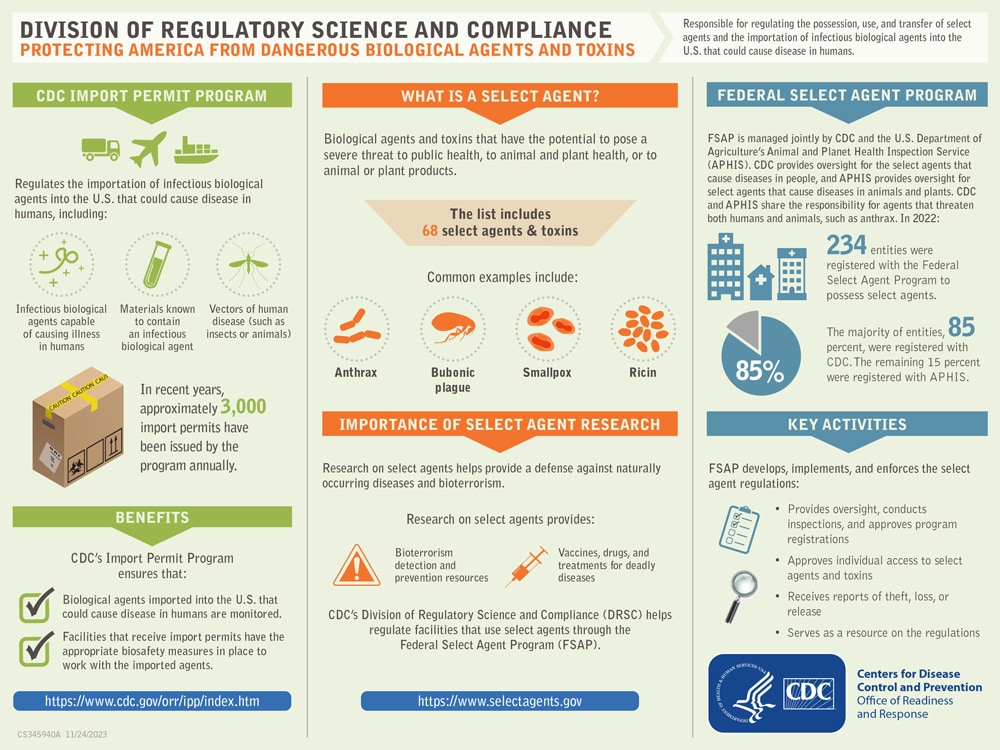Infographic: Division of Regulatory Science and Compliance
Division of Regulatory Science and Compliance
Protecting America from Dangerous Biological Agents and Toxins
Responsible for regulating the possession, use, and transfer of select agents and the importation of infectious biological agents into the U.S. that could cause disease in humans.
CDC Import Permit Program
Regulates the importation of infectious biological agents into the U.S. that could cause disease in humans, including:
- Infectious biological agents capable of causing illness in humans
- Materials known to contain an infectious biological agent
- Vectors of human disease (such as humans or animals)
In recent years, more than 3,000 import permits have been issued by the program annually.
Benefits
CDC’s Import Permit Program ensures that:
- Biological agents imported into the U.S. that could cause disease in humans are monitored.
- Facilities that receive import permits have the appropriate biosafety measures in place to work with the imported agents.
What is a Select Agent?
Biological agents and toxins that have the potential to pose a severe threat to public health, to animal and plant health, or to animal or plant products.
The list includes 68 select agents and toxins. Common examples include:
- Anthrax
- Bubonic plague
- Smallpox
- Ricin
Importance of Select Agent Research
Research on select agents helps provide a defense against naturally occurring diseases and bioterrorism. Research on select agents provides:
- Bioterrorism detection and prevention resources
- Vaccines, drugs, and treatments for deadly diseases
CDC’s Division of Regulatory Science and Compliance (DRSC) helps regulate facilities that use select agents through the Federal Select Agents Program (FSAP).
Federal Select Agent Program
FSAP is managed jointly by CDC and the U.S. Department of Agriculture’s Animal and Plant Health Inspection Service (APHIS). CDC provides oversight for the select agents that cause diseases in people, and APHIS provides oversight for select agents that cause diseases in animals and plants. CDC and APHIS share the responsibility for agents that threaten both humans and animals, such as anthrax. In 2022:
- 234 entities were registered with the Federal Select Agent Program to possess select agents.
- The majority of entities, 85 percent, were registered with CDC. The remaining 15 percent were registered with APHIS.
Key Activities
FSAP develops, implements, and enforces the select agent regulations:
- Provides oversight, conducts inspections, and approves program registrations
- Approves individual access to select agents and toxins
- Receives reports of theft, loss, or release
- Serves as a resource on the regulations
